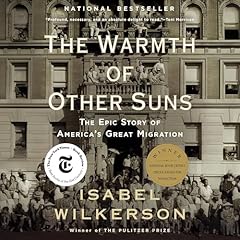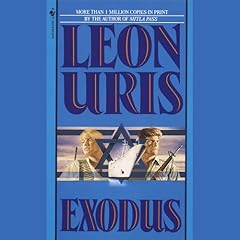
The Secret Piano
From Mao's Labor Camps to Bach's Goldberg Variations
No se pudo agregar al carrito
Add to Cart failed.
Error al Agregar a Lista de Deseos.
Error al eliminar de la lista de deseos.
Error al añadir a tu biblioteca
Error al seguir el podcast
Error al dejar de seguir el podcast
 Exclusivo para miembros Prime: ¿Nuevo en Audible? Obtén 2 audiolibros gratis con tu prueba.
Exclusivo para miembros Prime: ¿Nuevo en Audible? Obtén 2 audiolibros gratis con tu prueba.Compra ahora por $21.75
-
Narrado por:
-
Nancy Wu
Zhu Xiao-Mei was three years old when she saw her first piano, a cherished instrument introduced into her family’s Beijing home by her mother. Soon after, the child began to play, developing quickly into a prodigy who immersed herself in the work of such classical masters as Bach and Brahms. Her astonishing proficiency earned her a spot at the Beijing Conservatory at the tender age of 11, where she began laying the foundation for a promising career as a concert pianist. But in 1966, with the onset of the Cultural Revolution, life as she knew it ended abruptly.
The Communist Party’s campaign against culture forced the closure of art schools and resulted in the deportation of countless Chinese, including Xiao-Mei and her entire family. She spent five years in a work camp in Inner Mongolia, suffering under abysmal living conditions and a brutal brainwashing campaign. Yet through it all, Xiao-Mei kept her dream alive, drawing on the power of music to sustain her courage.
©2012 Zhu Xiao-Mei (P)2012 Brilliance Audio, Inc.Los oyentes también disfrutaron:




















I will say I was surprised at how brutally honest she was. She carried alot of guilt over her childhood and teen actions due to the brainwashing in the Cultural Revolution. ITs heartbreaking. Something she said really stuck with me. She is now a Christian, although she doesn't proselytize about it. Instead, quite the opposite. She mentioned a church or group she went to that was preaching Christianity the way Mao was preached in China. Of course, she didn't stick with that group. In fact, America didn't free her to worship. Food for thought.
Interesting and Honest
Se ha producido un error. Vuelve a intentarlo dentro de unos minutos.
Where does The Secret Piano rank among all the audiobooks you’ve listened to so far?
In addition to being a great story, it is also a great way for those unfamiliar with the Chinese Cultural Revolution to learn about one of the strangest (and violent) social movements in modern history.Great story, great for learning
Se ha producido un error. Vuelve a intentarlo dentro de unos minutos.
I don't want to give away anymore than I already have, but her journey from this is only the beginning of her trials and tribulations...and triumphs. Because of her specializing in Bach and, specifically the Goldberg Variations, I ordered the music for myself and have been working through it. Even if you're not a musician, this whole saga will keep you riveted. The narrator does an excellent job of pronouncing the Chinese authentically, yet keeping it understandable to the American ear.
Such an inspiring, true story!
Se ha producido un error. Vuelve a intentarlo dentro de unos minutos.
Interesting
Se ha producido un error. Vuelve a intentarlo dentro de unos minutos.
I recommend this to anyone interested in piano music/Bach's work/the cultural revolution of Mao/China. This book is perfect for me because I'm a Chinese (but not from China) and I can play the piano.
The words are not difficult and yet the story is so rich. I cried throughout.
Best book on Mao's cultural revolution and piano music
Se ha producido un error. Vuelve a intentarlo dentro de unos minutos.


